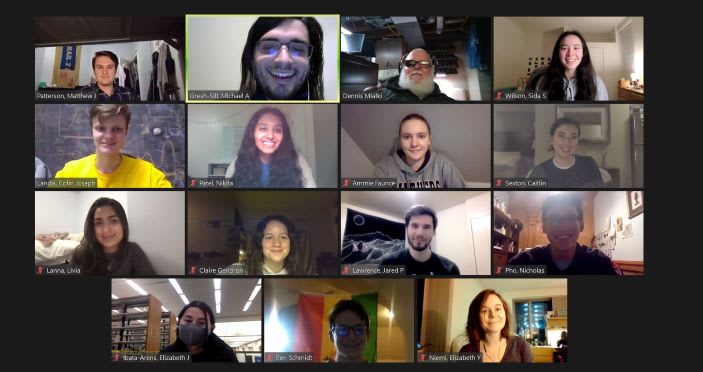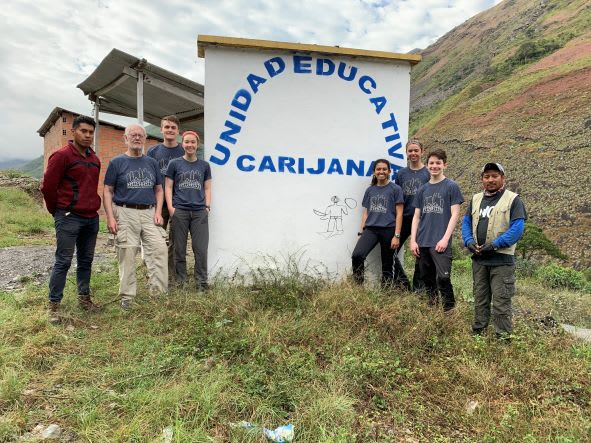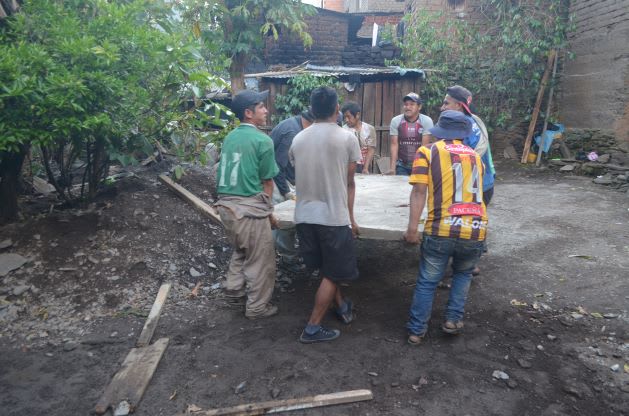This project is now in update mode. Check back regularly to see how things are progressing.
Engineers without Borders
Who Are We?
Engineers Without Borders USA is a non-profit international service organization that aims to build a better world by empowering communities to meet their basic human needs and providing them with the skills to solve their future demands. The University of Pittsburgh Student Chapter has had two previous projects in years past including a fishing farm in Mali, Africa and a water distribution project in Tapagem, Brazil as well as several other local projects in Pittsburgh. At the moment we have two international projects, one in Bolivia and one in Ecuador, along with a local project in Midland and Washington County. Historically, our organization has been largely composed of engineering majors. While our projects are engineering in nature, we have always recognized the necessity for a public health sector of our organization to ensure our projects address the needs of the community. These steps not only ensure sustainability but help to positively impact the quality of health and life in our partner communities.

Bolivia Project
EWB-Pitt partnered with the community of Carijana, Bolivia in the Fall of 2018. The community is located 9 hours from one of Bolivia’s capitals, La Paz. Specifically, the community is 20 miles east of the border of Peru and 50 miles north of Lake Titicaca. Carijana consists of about 50 households. The main languages spoken in the community are Quechua and Spanish. The community’s economy and workforce focus largely on cash crops and subsistence agriculture. We are working alongside the community on a sanitation project with a focus on the construction of latrines and updated sanitation education. Carijana requested approximately 50 personal latrines, one per household. After an assessment trip to the community and many discussions with the people of Carijana, we have agreed that an offset pour flush latrine is what is currently needed to sustain the community. These specific latrines function very similarly to western style toilets, where water is poured into the bowl until the toilet flushes. Waste is then piped to a sealed pit. In October 2020 and September 2021, our team was able to coordinate remote implementations of twenty latrines in total with the help of our partnered non-governmental organization, Engineers in Action (EIA). Looking forward, our team plans to conduct an in-person implementation trip in August of 2022. We plan to send five engineering students and two travel mentors, travel guidelines permitting. Travel plans are subject to change, keeping in mind the safety of the community and our travel team. If in-person implementation isn’t feasible we will plan to transition to remote implementation, which will be closely monitored by our project team in collaboration with the community of Carijana.

Ecuador Project
This is Engineers Without Borders - University of Pittsburgh’s first partnership with the communities of Tambanal and Ayaloma in Ecuador. The partnership between the University of Pittsburgh’s chapter of EWB (EWB-Pitt) and the two communities was approved on 9/27/2021. The communities have requested EWB’s assistance in implementing a new water filtration and distribution system. Out of the 90 families in these two communities, 30 of the families have signed on and applied for the project. At the moment, the rest of the families do not want to participate. In the community, there exists the Tambanal-Ayaloma water board, the CBO that supports this partnership. In addition to partnering with these communities, EWB-Pitt will also work closely with the in-country EWB office and with the Pittsburgh Professional EWB Chapter, who works on water projects in Ecuador as well. The original water system in the community was built in 1963 by the Ministry of Urban Development and Housing (MIDUVI) and reportedly never worked well due to poor design. This system has since been destroyed and their current methods of water obtainment are to transport water from the water sources to their homes via hoses or by carrying buckets. During the dry season (June-December), these water sources can dry up, leaving the families without access to water. Additionally, the water from these sources is unfit for human consumption and has led to health problems in the community, especially among children and older adults. The project team at EWB-Pitt intends to send a travel team(5 team members and two mentors) to the communities in August of 2022 in order to complete an assessment trip. This assessment trip will also allow the chapter to establish a relationship with the community that they will be working with for the next 4 to 5 years. The information our team members will gather will allow our organization to more effectively plan to solve the community’s water issues.
Where will your Donation Go?
Your donation would go towards our team members traveling to their respective communities, and accomplishing their goals. For the Bolivia project, it means the cost of materials, the shipping of materials, travel costs, travel mentors, a translator, and our project engineer that works for our partnered in-country NGO (in this case, Engineers in Action) to collect all of the construction materials and equipment to be transported to the community. Since the community of Carijana is so remote, the shipping and handling fees for the materials are very costly. Additionally, the project engineer stays in the community for a few days, and returns once every few weeks, to monitor the construction process. The NGO also hires a mason to help with professional brickwork to ensure the safety of our structures. Your donations will directly cover the cost of sending the project engineer to oversee construction and the cost of providing the materials to the community. In Ecuador, the donation would go towards supplies for travel, lodging, a variety of tests, and food supplies. As it’s a preassessment trip, the use of funds for Ecuador is less diverse, but just as important because setting up good lines of communication with the community ensures a much greater chance of success as the project moves forward.

_______________________________
Contributions received for this project shall be used in accordance with the purpose described herein, the terms in the FAQs and applicable law. For questions that cannot be answered in the FAQs, please call 412-648-4658 or email engage@pitt.edu.
$50
Step 2: Technical Training
Covers the cost of two travel members for training retreat focused on practicing technical data collection
$100
Step 3: Pack
Covers material and equipment costs like test strips, water test kits, shovels, gravel etc.
$250
Step 4: Ship It
Covers the cost of shipping all the materials to the remote communities of Carijana and Ayaloma.
$1,000
Step 6: Fund a Family
Covers the expenses to build one entire latrine (materials + shipping) for a family in Carijana or to build one water distribution and filtration system in Ayaloma.






